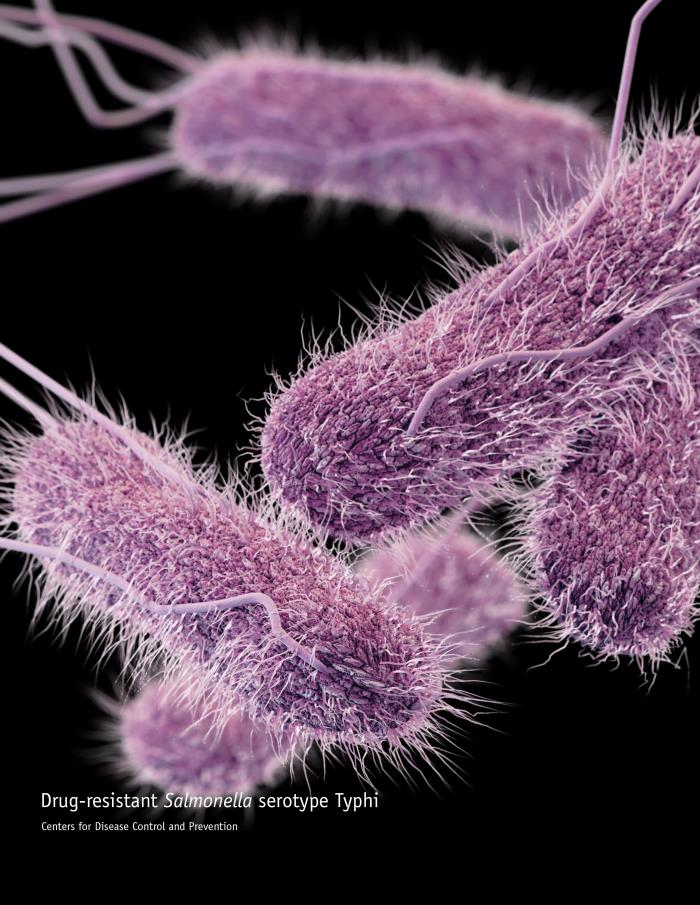More Salmonella Cases Linked to Kratom
/By Pat Anson, Editor
The Centers for Disease Control and Prevention says another 45 people have been sickened in a salmonella outbreak linked to the herbal supplement kratom. A total of 132 people have been infected in 38 states, with 38 of them hospitalized. There have been no deaths.
Salmonella is a bacterial infection usually spread through contaminated food or water. Most people who become infected develop diarrhea, fever and stomach cramps. Salmonella causes an estimated one million food-borne illnesses a year in the United States.
This particular outbreak is small compared to previous ones, but it’s been long-lasting. While the vast majority of cases have only been reported in the last few months, CDC traced the first illnesses back to January 2017. Three different Salmonella strains have been identified – none of them resistant to antibiotics.
Millions of Americans use kratom to treat chronic pain, addiction, depression, anxiety and other medical conditions. The CDC says kratom is the “likely source” of the outbreak – although the evidence behind it is not entirely clear.
Several kratom samples have been found to be contaminated with salmonella bacteria, but less than half the people sickened in the outbreak say they consumed kratom. Their ages are also unusual, ranging from 1 to 73 years old.
salmonella bacteria
“State and local health officials continue to interview ill people to ask about the foods they ate and other exposures before they became ill. Fifty-seven (73%) of 78 people interviewed reported consuming kratom in pills, powder, or tea,” the CDC said in its latest update.
“People who reported consuming kratom purchased it from retail locations in several states and from various online retailers. Despite the information collected to date about where ill people purchased kratom, a single common brand or supplier of kratom has not been linked to the outbreak. CDC continues to recommend that people not consume kratom in any form because it could be contaminated with Salmonella and could make people sick.”
Earlier this week, the Food and Drug Administration ordered a Las Vegas company – Triangle Pharmanaturals -- to recall all of its dietary supplements containing kratom. The rare mandatory recall order was issued after the company refused to make a voluntary recall when some of its kratom capsules were found contaminated with salmonella.
There other kratom distributors – PDX Aromatics, Tamarack and NutriZone voluntarily recalled their products after samples tested positive for salmonella. A complete list of recalled kratom products can be found here.
Many kratom supporters remain suspicious of the motives behind the federal government’s salmonella investigation. The Drug Enforcement Administration tried unsuccessfully to list kratom as a controlled substance in 2016, which would have effectively banned its sale and use. In recent months, the FDA has also released several warnings that kratom should not be used to treat any medical conditions because it has opioid-like properties and could cause addiction.
The American Kratom Association (AKA) – a pro-kratom association of consumers and vendors -- is currently surveying members “to get a clearer picture” of the actions taken by the FDA and CDC in the salmonella outbreak.
“We are particularly concerned with reports that the FDA/CDC may be using the salmonella outbreak purportedly in kratom products as a pretext to allow the FDA to expand their war on kratom,” the AKA says on its website. “If your business was contacted by either the FDA or CDC regarding the salmonella outbreak that has been associated with kratom, we are asking that you take the following survey.”
Among other things, the survey asks vendors if they were given a laboratory analysis of any “alleged salmonella contamination” by the FDA or CDC, and if they were given time to conduct their own independent lab test.










